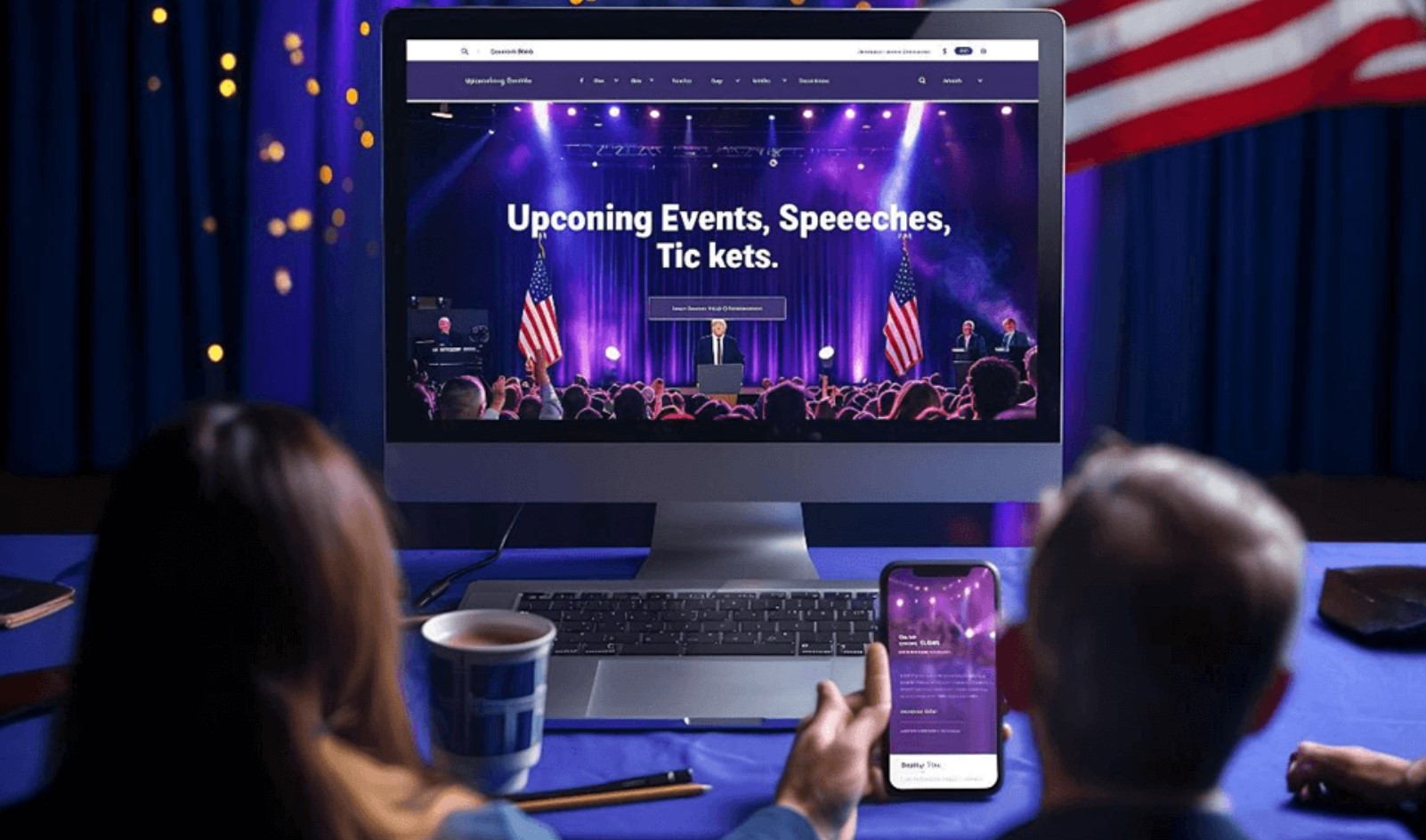people-blogs

April 04,2025 • 4 min read
The Complete Guide to Event Websites: Everything You Need to Know

In today's digital-first world, an event website has become the cornerstone of successful event planning and execution. Whether you're organizing a corporate conference, a music festival, or a wedding, understanding the importance of an event website and implementing best practices can make the difference between success and failure.
Understanding the Power of Event Websites
An event website serves as your digital headquarters, providing potential attendees with everything they need to know about your upcoming gathering. Unlike traditional marketing materials, an event website offers dynamic, real-time information and interactive features that enhance the attendee experience from start to finish.
Many organizers underestimate the importance of an event website, viewing it as just another marketing channel. However, a well-designed event website does much more than promote your event – it serves as a central hub for engagement, information dissemination, and registration management.
The Critical Importance of an Event Website
The importance of an event website cannot be overstated in today's digital landscape. Here's why:
-
First Impressions Matter Your event website is often the first point of contact between your event and potential attendees. A professional, well-designed website immediately establishes credibility and sets the tone for your entire event.
-
Information Access An event website provides 24/7 access to vital information, reducing the burden on your support team and ensuring attendees can find what they need when they need it.
-
Registration Management A dedicated event website streamlines the registration process, making it easier for attendees to sign up and for organizers to manage participants.
Event Website Best Practices That Drive Results
To maximize the effectiveness of your event website, consider these proven best practices:
1. User-Centric Design
-
Implement clear navigation
-
Ensure mobile responsiveness
-
Optimize page load speeds
-
Use high-quality visuals
2. Content Strategy
-
Create compelling event descriptions
-
Include detailed schedules
-
Feature speaker profiles
-
Showcase past event highlights
3. Technical Optimization
-
Implement SEO best practices
-
Ensure cross-browser compatibility
-
Set up analytics tracking
-
Regular performance monitoring
Understanding Different Types of Event Websites
Event Microsite: Focused and Targeted
An event microsite is a specialized website dedicated solely to your event. This focused approach allows for:
-
Targeted messaging
-
Custom branding
-
Simplified navigation
-
Dedicated analytics
Event Management Website: Comprehensive Control
An event management website goes beyond basic information to provide:
-
Attendee tracking
-
Schedule management
-
Speaker coordination
-
Sponsor management
-
Resource allocation
Event Registration Website: Streamlined Process
A dedicated event registration website focuses on:
-
Secure payment processing
-
Multiple ticket types
-
Automated confirmations
-
Attendee data collection
Maximizing Your Event Website's Potential
1. Integration Capabilities
Your event website should seamlessly integrate with:
-
Marketing automation tools
-
CRM systems
-
Social media platforms
-
Email marketing software
-
Payment gateways
2. Content Updates
Keep your event website fresh with:
-
Regular news updates
-
Speaker announcements
-
Schedule changes
-
Sponsor highlights
-
Countdown timers
3. Mobile Optimization
With increasing mobile usage, ensure your event website is:
-
Responsive across devices
-
Touch-friendly
-
Fast-loading on mobile
-
Easy to navigate on small screens
Measuring Success
Track these key metrics to gauge your event website's performance:
-
Registration conversions
-
Page views and engagement
-
Time on site
-
Bounce rates
-
Mobile vs. desktop usage
Future-Proofing Your Event Website
As technology evolves, consider incorporating:
-
Virtual event capabilities
-
AI-powered chatbots
-
Personalization features
-
Interactive maps
-
Live streaming options
Conclusion
The importance of an event website extends far beyond simple event promotion. It serves as a powerful tool that can drive registration, engage attendees, and ensure event success. By following event website best practices and leveraging the right combination of event management website features, you can create a digital experience that converts visitors into engaged participants.
Remember that your event website is an investment in your event's success. Whether you choose to create an event microsite, a comprehensive event management website, or a focused event registration website, ensure it aligns with your goals and provides value to your attendees.
Take time to implement these strategies and best practices, and you'll create an event website that not only meets but exceeds both organizer and attendee expectations. In today's digital age, your event website isn't just a nice-to-have, it's a must-have tool for event success.
Mayra Shaikh Details
User Profile
- Full name
- Mayra Shaikh
- Email address
- shaikhmayra40@gmail.com
- Join Date
- 2025-04-04
- State
- City
- Pincode
- Address
- Follow us on Facebook
- Follow us on Twitter
- Website Name
- Bio